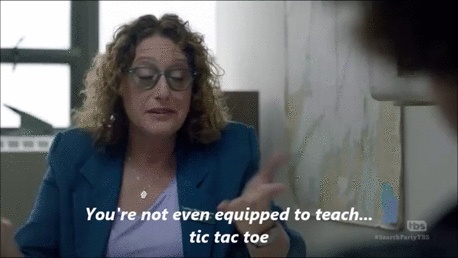
by Jean Marie Carey | 9 Apr 2018 | Animals in Art, Art History
So, now that my time at the Rifkind Center is coming to an end, I have some breaking news announcements to post in sequence…
First, beginning this Saturday and through the summer months I will … well, be involved in a series of discussions about art history sponsored through a grant I received from the Hillsborough Public Library Cooperative. It’s all kicking off at the SouthShore Regional Public Library in Ruskin.

IKR
The SouthShore Library has a great history of funding arts programs for the patrons in its off-the-track corner of the county and I am very grateful to receive this support and for being able to work around upcoming travel obligations. The library staff had in mind a formal sequence of talks, but the proposal I made is for something more experimental that I have had in mind for a while…

…which is why I hesitate to call these “lectures.” Each session is going to be very interactive and will unfold in a participant-driven way, and there will be a digital component posted for downloading during and after each event.
(more…)

by Jean Marie Carey | 20 Sep 2008 | Art History

Peak Libraries: Developing Sensitivity to Future Consequences
Insensitivity to future consequences is an identified behavioral aberration experienced by people who have experienced traumatic brain injuries to the cerebral cortex (Franck, 1995). Though perplexing and disruptive, at least there is some explanation for the actions of those who suffer this affliction. There is no such biological explanation for the shortsighted and damaging behaviors affected by those responsible for the stewardship of public library and museum programs, particularly in Florida. Florida’s plight, which is duplicated in states and municipalities nationwide, presents a particularly tragic case as the consequences of defunding important cultural and social programs may easily be foreseen.
Parallels may be drawn between the “gas crisis” and the “library crisis.” For more than twenty years, since the administration of President Ronald Reagan, patrons and employees of museums and libraries have dealt with increased funding shortfalls and budget and staff cuts in pretty much the same way as the general population has dealt with the current petroleum crisis: by complaining, and doing nothing else. Until recently, drivers griped about gouging at the gas pump and kept buying Hummers. Librarians and museum curators long bemoaned the crumbling cultural infrastructure (Klein, 2007). Through 2006 and 2007 commuters continued to drive exactly as much as always, and since 1984, library administrators have also continued, with respect to the lack of public funding for collections and facilities, to commiserate with colleagues and at library conferences, and perhaps most damagingly, to continue to rely on the personal integrity and client focus of library staffers to maintain the high level of productivity and professionalism associated with librarianship.
(more…)

by Jean Marie Carey | 13 Sep 2008 | Art History


“I’m really shocked that the city has made the decision to close the library on Friday and Saturdays,” resident June Connell said of the city’s proposal to close the Countryside Library on Fridays and Saturdays to save money. — From The St. Petersburg Times September 5, 2008, edition.
Hey city of Clearwater residents, particularly those who voted for Amendment 1! Here’s what the closings of the Clearwater library branches are paying for: For the sprinkler system to be turned on while four city workers lay chalk lines and even up the turf at the Drew Street sports complex, commencing at 6:00 a.m. weekdays.





